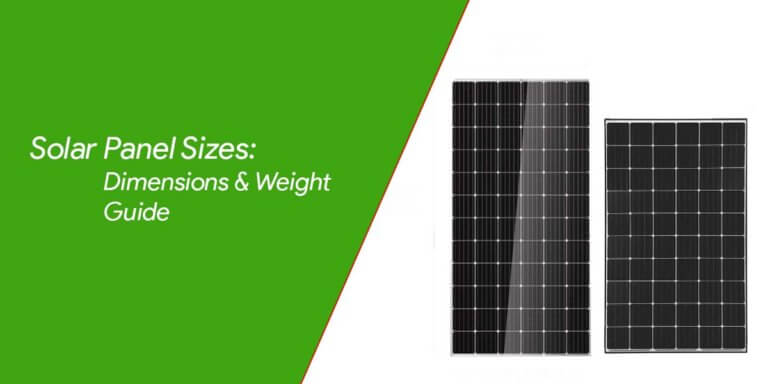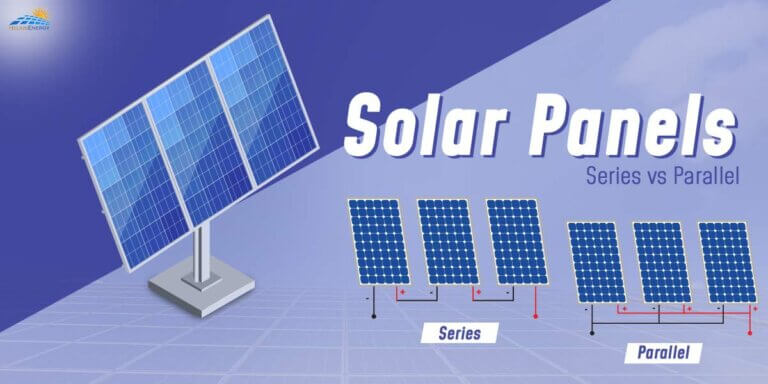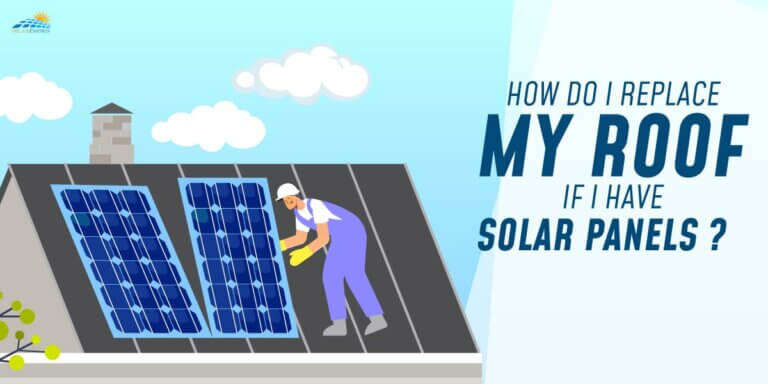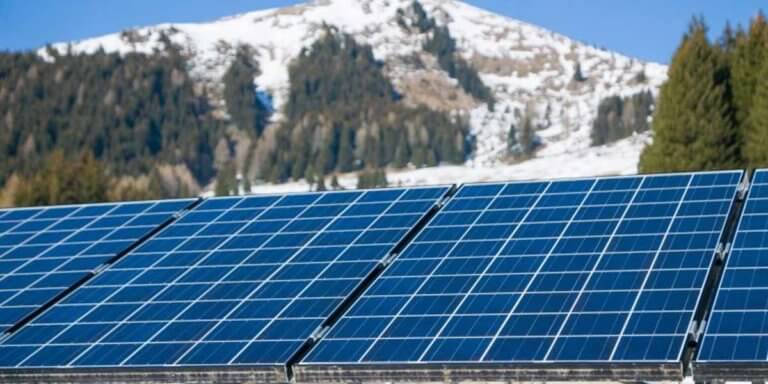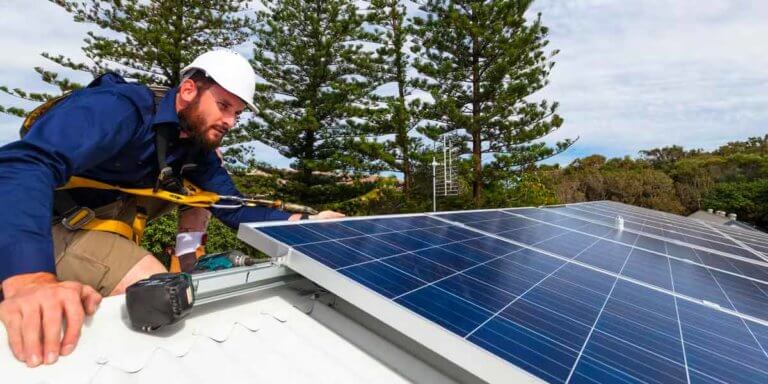Do Solar Panels Attract Lightning? | Solar FAQs
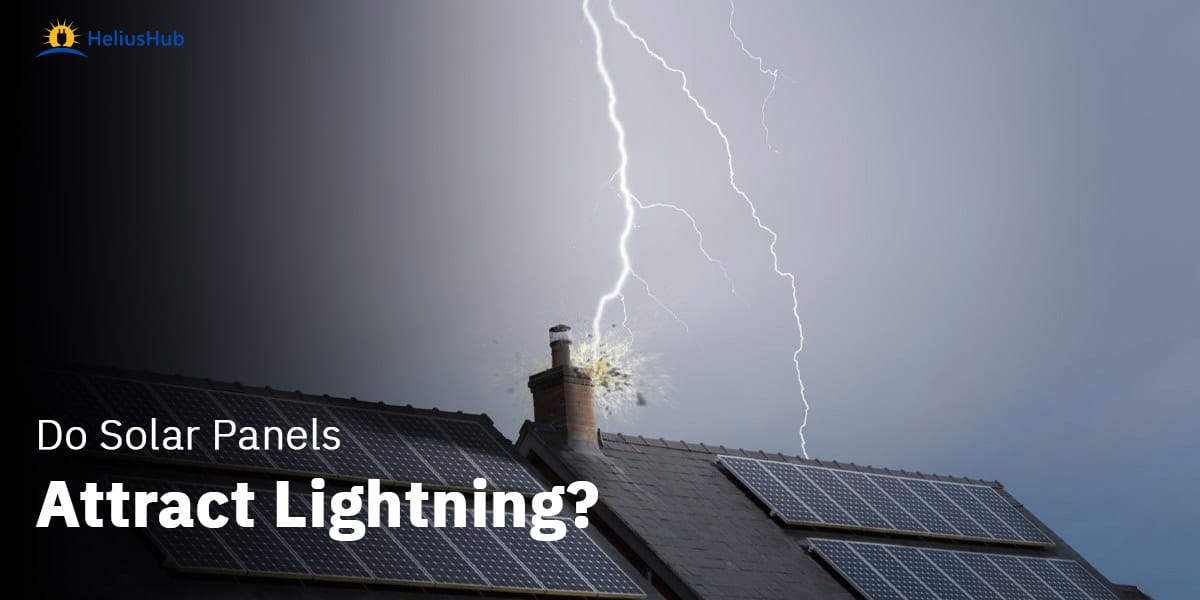
Solar panels have become increasingly popular in the last decade as a way to reduce electricity bills and carbon footprints. As the popularity of solar panels continues to grow, so do concerns about the safety of these systems, specifically the risk of lightning strikes.
While some people believe that solar panels attract lightning, scientific evidence suggests otherwise. This article will discuss the relationship between solar panels and lightning and provide insight into whether or not solar panels indeed attract lightning.
We will explore the potential risks of lightning strikes, examine the scientific evidence, and consider the steps that can be taken to protect solar panels from lightning damage.
Ultimately, this article will provide readers with the knowledge necessary to make an informed decision regarding the safety of their own solar panel systems.
How Do Solar Panels And Lightning Work?
How Solar Panels Work?
Solar panels are devices that convert sunlight into electricity. They are made up of photovoltaic cells, which contain semiconductor materials like silicon.
When sunlight hits the cells, electrons are released, and the resulting electrical current is used to generate electricity. Solar panels come in a variety of sizes and shapes and can be installed on rooftops, in fields, or even in space.
How Lightning Works?
It is a sudden and powerful discharge of electricity. It is created when electrical charges in the atmosphere become unbalanced, and the resulting energy is released in a powerful bolt of lightning. Lightning is dangerous and can cause widespread destruction to homes and buildings.
History Of Solar Panels
Solar Panel Installations and Lightning Incidents Solar panels have been in use since the 1950s, but their popularity has grown significantly in recent years. The cost of installing and maintaining solar panels has dropped significantly, making them more accessible to homeowners and businesses.
Lightning incidents have been recorded since ancient times, but more recently, advances in technology have made it easier to monitor and record lightning strikes. This has allowed researchers to understand the causes and effects of lightning better and develop safety protocols to help protect people and structures.
The Science Behind Solar Panels and Lightning
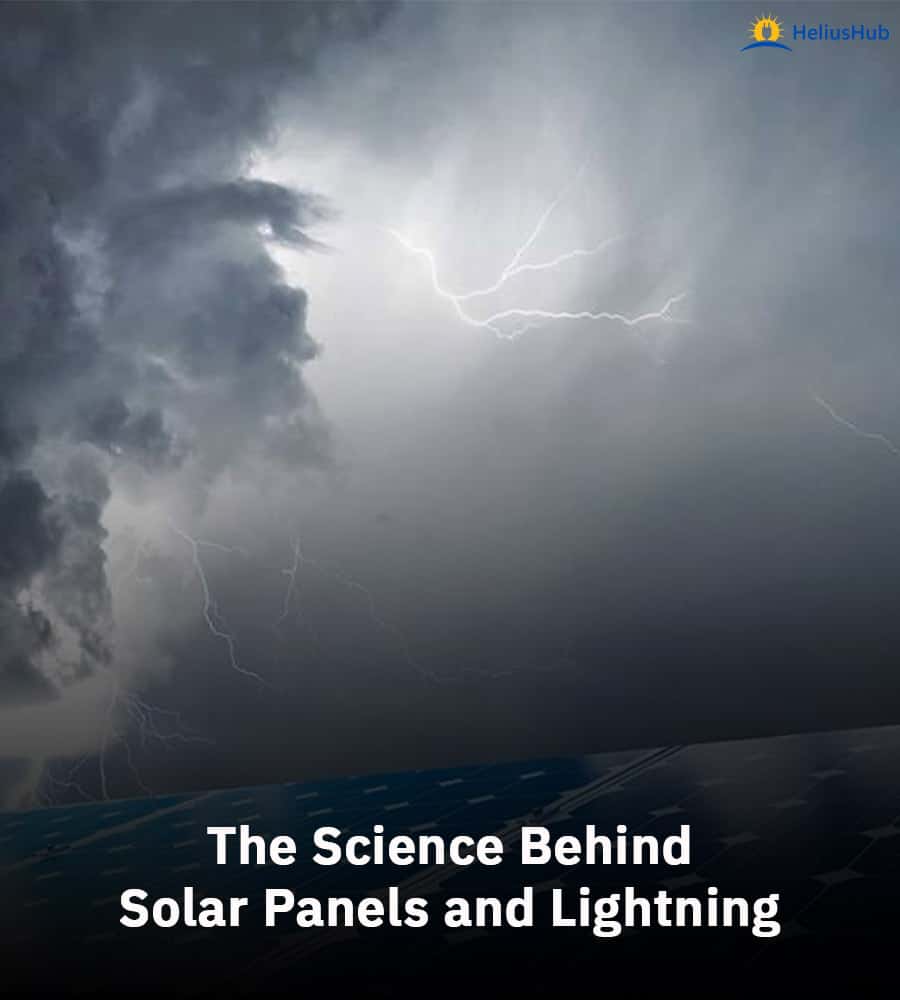
Solar panels are made up of photovoltaic cells that convert sunlight into electrical energy. This is achieved by allowing the electrons from the sun’s photons to be released from the atoms in the solar panel and then collected by the panel’s circuitry. In a simplified explanation, the solar panel absorbs energy from the sun’s rays, which is then converted into electricity.
The question of whether solar panels are more likely to attract lightning compared to other structures has been studied by many researchers.
Studies have shown that solar panels are able to withstand lightning strikes, although they may be more likely to be hit than other structures. This is due to the fact that the solar panels are higher off the ground, making them more visible to lightning strikes.
Additionally, the electrical properties of the cells in the panels may also make them more susceptible to lightning strikes.
However, research also suggests that solar panels are no more likely to be hit by lightning than other structures of a similar height.
This is because solar panels are not always the tallest structure in an area and may not be the most visible target for a lightning strike. Furthermore, since solar panels are typically grounded, they do not increase the risk of a lightning strike.
Overall, research has not found that solar panels are more likely to attract lightning compared to other structures. There is evidence to suggest that solar panels may be more visible to lightning strikes due to their height and electrical properties, but this does not necessarily mean
Protecting Solar Panels and Homes from Lightning
- To protect solar panels and homes from lightning, homeowners should take preventative measures such as installing lightning rods and surge protectors. Lightning rods, also known as air terminals, are designed to intercept lightning strikes and safely redirect them into the ground.
- They should be installed on the highest point of the home, such as the roof, and the ground should be connected directly to a metal plate or metal rod that is buried deep in the ground. Surge protectors can also help protect appliances and electronics from lightning-induced power surges.
- Lightning protection systems are specialized systems designed to protect homes and buildings from lightning strikes. They typically consist of lightning rods, surge protectors, and grounding wires connected to the building’s electrical system. Lightning protection systems are intended to help prevent lightning from entering the home or building and minimize the risk of damage from a lightning strike.
- Homeowners should also take extra precautions during a lightning storm. Unplugging electronics and appliances from power sources will help protect them from power surges.
Additionally, homeowners should avoid being in contact with metal objects and stay away from windows and other openings that can allow lightning to enter the home. It is also important to remember to disconnect all solar panels from their power source during a lightning storm to prevent them from being damaged.
Conclusion
The article provides an overview of the question: Do Solar Panels Attract Lightning? It explains that while there is no scientific evidence that lightning is attracted to solar panels, solar panels do create a higher point of elevation, which may increase the risk of a direct lightning strike.
The article also provides tips to reduce the risk of lightning strikes to solar panel systems, such as increasing the distance between the solar array and other structures and installing lightning rods and surge protectors.
The article’s purpose was to provide an overview of the question and offer advice on reducing the risks associated with lightning strikes. It is recommended that solar panel owners take extra precautions to protect their solar panel systems from lightning strikes.

